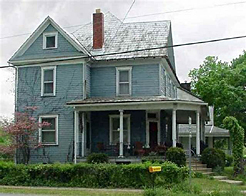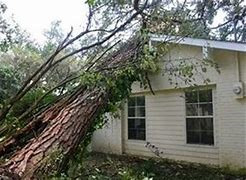FREQUENTLY ASKED INSURANCE QUESTIONS
Question: My neighbor wants to borrow my pickup to haul away some of his leaves and pine needles. Will he be covered under my policy when he drives my truck?
Answer: Assuming the pickup is scheduled on your insurance and that your insurance is currently active, and assuming your policy is the common P.A.P. or Personal Auto Policy (as opposed to some type of specialty non-standard auto insurance, or a Broad Form policy that would only insure you as a driver), then yes, the coverage on your vehicle will extend to any licensed driver who uses it with your permission and who isn't specifically excluded on your insurance.
However, even with valid insurance coverage, loaning one's vehicle for another's use always warrants careful consideration as any covered accidents involving the vehicle would become part of the named insured's loss history.
Question: I am planning a trip to British Columbia this spring and was hoping to drive my own car. Will my auto insurance cover me outside the United States?
Answer: In your case (assuming your policy is a Personal Auto Policy), yes. The standard coverage territory is the United States and its territories, Puerto Rico, and Canada. But if you have any trips planned for Mexico in the future, you should plan to buy Mexican auto insurance.
 Question: If I sell my house to my brother, can't he just take over my existing Homeowner's Policy as long as he pays the premium in the future and we just do a name change on the policy? Question: If I sell my house to my brother, can't he just take over my existing Homeowner's Policy as long as he pays the premium in the future and we just do a name change on the policy?
Answer: No, most companies will require a re-write of the insurance for any changes in ownership of insured property and it is important to understand that a new property owner would not automatically become the policyholder of any existing insurance on the property without company underwriter approval. It is important to read and understand exactly who is an insured in the policy's definitions section.
Question: There's a wasp nest on my front porch. As I'm worried that this might create a liability hazard involving my Homeowner's insurance, shouldn't I call my insurance agent or an insurance professional to come out to my residence and remove the nest, as a loss preventative measure?
Answer: The best person to call for a situation like this is probably a pest control professional. Removing hazards from an insured property is the responsibility of the insured, not of insurance providers or their representatives.
Additionally, insurance policies address the responsibilities of insureds concerning taking reasonable steps to eliminate potential hazards. Failing to correct a known hazard could in some cases actually jeopardize the important insurance coverage.
Question: It's been raining hard for three days where I live and the chance of water getting into my basement looks pretty high now. Should I feel confident that I'm well protected as long as I've paid the premium on my Homeowner's insurance?
Answer: Homeowner's policies (as well as most types of property insurance) actually exclude coverage for damage caused by natural water, i.e. floodwater (as distinguished from water from a burst water pipe, where there generally is coverage for ensuing property damage as long as it isn't a gradual leak occurring over a period of time).
Flood insurance is a separate realm of property insurance, but many if not most independent insurance agents are also able to write flood insurance through the National Flood Insurance Program.
 Question: My neighbor has a tall tree on his property that looks like it could do a lot of damage to my garage if the wind blew it down my way. If that happens should I make the insurance claim to the company that insures his property? Question: My neighbor has a tall tree on his property that looks like it could do a lot of damage to my garage if the wind blew it down my way. If that happens should I make the insurance claim to the company that insures his property?
Answer: Generally speaking, the owner of the damaged property - rather than of the tree - would make the claim under his own insurance, regardless of where the falling tree came from. This is because the Homeowner's policy covers property damage caused by falling objects, and also because the only way your neighbor's carrier would pay for your damaged property would be if he could be held legally liable for causing it. In most cases he probably wouldn't because nobody can control or predict wind hazards.
Question: Why did my insurance company arbitrarily raise the value of my house this year on my Homeowner's policy without my authorization? Is this so they can justify charging me a higher premium?
Answer: Most Homeowner's policies have built into them what is known as "Inflation Guard," which means that the insuring amount of the dwelling will incrementally adjust upward a certain percentage at every renewal to more accurately reflect the current replacement cost of the home. There is nothing arbitrary about it - it is calculated using industry-established formulas.
Question: I bought a rental dwelling that I plan to rent out to college students. What special insurance coverage should I buy to protect me specifically against potentially destructive tenants?
Answer: Unfortunately, intentional acts of an insured are never covered by insurance. Tenants of any property you own actually occupy your dwelling with your permission and in that sense are sometimes considered the same as if you were occupying the property, so any claims arising from that scenario could be denied by your carrier for that reason.
Perhaps the two best ways a landlord can protect himself against damages to his property by tenants is to first carefully screen the tenants' applications, and then collect an adequate deposit before handing over the door key.
It is also worth noting that tenants are responsible for their own personal property, and they can buy Renter's insurance to protect their personal property and their own personal liability.
Question: A friend of mine just purchased a 1920's two-story "fixer-upper" house for $90,000 and he said the top of the market (once restored) is maybe around $145,000. He said he can't find an insurance company willing to insure the house for anything less than $225,000. Why is that?
Answer: The insuring replacement value of a particular dwelling has very little if anything to do with its real estate market value, which could be influenced by such aspects as the age and condition of the home, maybe the view it affords, the size of its lot, the aesthetics of the neighborhood, the popularity of the area or the property's location in relation to schools or supermarkets for convenience, and so on.
The replacement value, by contrast, has everything to do with the building costs anticipated to replace a structure with certain specifications including square footage and construction type and all of its unique features having the same architecture and style as the property lost.
"Jim Ballou has been my insurance agent for many years. He's very thorough if you need a new policy or just want to make changes on an existing one. I believe his customer service skills are top notch." - Knut Rogers
|